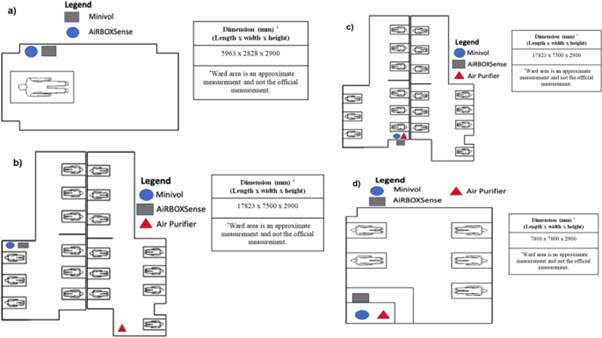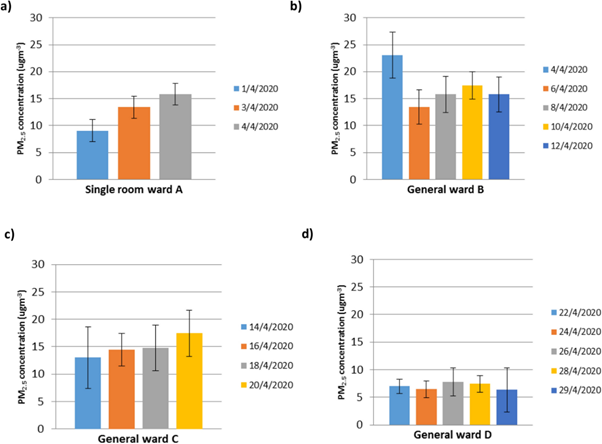Journal of
eISSN: 2373-6453


Editorial Volume 10 Issue 1
1Faculty of Medicine, Western University, Thailand
210th Zonal Tuberculosis and Chest Disease Center, Thailand
3Department of Pathology, Faculty of Medicine, Chiang Mai University, Thailand
Correspondence: Attapon Cheepsattayakorn, 10th Zonal Tuberculosis and Chest Disease Center, 143 Sridornchai Road Changklan Muang Chiang Mai 50100 Thailand, Tel 6653140767, 6653276364, Fax 6653140773, 6653273590
Received: February 27, 2023 | Published: February 27, 2023
Citation: Cheepsattayakorn A, Cheepsattayakorn R, Siriwanarangsun P. Potential SARS-CoV-2 (COVID-19) Carrier by PM2.5. J Hum Virol Retrovirol. 2023;10(1):12-13. DOI: 10.15406/jhvrv.2023.10.00257
PM2.5, a fine solid aerosols with diameter of 2.5 µm or less is ambient air.1 There have reports of association between respiratory viruses and PM2.5,2 but no correlation was found between PM’s diameter and the virus concentration.1 PM2.5 in indoor environments is derived mainly from common outdoor sources.3–5 PM2.5 with longer lifetime of the particles can be deposited in hospitals’ flooring6,7 and any other surface materials.8,9 A recent study at a teaching hospital, in Kuala Lumpur, Malaysia revealed that there was highest SARS-CoV-2 (COVID-19) RNA on PM2.5 in the number-of-occupant wards.1 They demonstrated the association between the ward’s design and the SARS-CoV-2 (COVID-19)-laden PM2.5 (Figure 1 and Figure 2).1

Figure 1 Demonstrating the layout and dimension of the wards with instrumentation deployment a single room A b general ward B, c general ward C and d general ward D. (Note: The beds in the figure does not represent the actual number of beds in the wards, at a teaching hospital in Kuala Lumpur, Malaysia).1
.
Figure 2 Particulate matter (PM2.5) as a potential SARS-CoV-2 carrier 48 h average concentration PM2.5 at a single room ward A b general ward B, c general ward C and d general ward D (at a teaching hospital in Kuala Lumpur, Malaysia) .1
.In conclusion, in an enclosed environment, PM2.5 with number of airborne-SARS-CoV-2 (COVID-19) can influence patients’ clinical manifestations.
None.
Author declares that there is no conflict of interest.
None.

©2023 Cheepsattayakorn, et al. This is an open access article distributed under the terms of the, which permits unrestricted use, distribution, and build upon your work non-commercially.